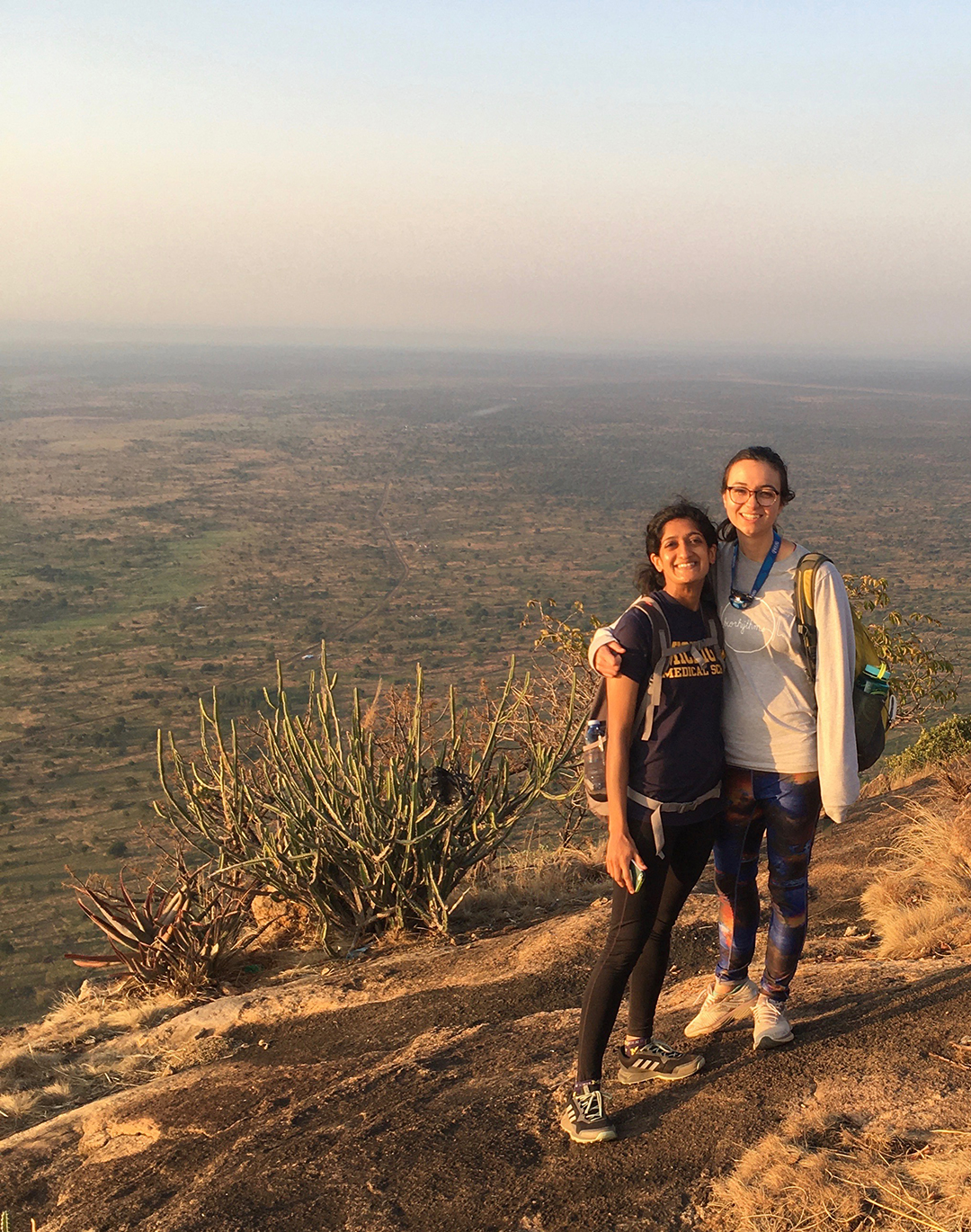
Ione Locher and Anita Vasudevan are latest UMMS students to take part in a Uganda-based social medicine course. Called Beyond the Biologic Basis of Disease, the class is put on by the non-profit SocMed and focuses on the social and historical determinants of healthcare and disparities in sub-Saharan Africa. Global REACH provided financial support for both to participate.
“The ideas underpinning the course, the social determinants of diseases, were things I was very familiar with,” said Locher. “But what was unique was we really spend a lot of time learning as much as we could about the place we were in, talking about how the colonial history of the region contributed to the disparities that we see today.”
Put on each in year in partnership between the University of Minnesota Center for Global Health and St. Mary’s Lacor Hospital, in northern Uganda, the class attracts learners from multiple disciplines and from all over the world. Locher and Vasudevan’s cohort included nursing professionals from Canada, community health experts from Liberia, a pharmacist from Zimbabwe, and medical students, physicians, and a clinical psychologist from Uganda, among others. SocMed is intentional about ensuring that half of the participants in each class come from the African continent.
“There is so much value in having a framework for understanding for how our local health issues sit within a broader, global context. We learned how to build that perspective,” said Vasudevan, who graduates this spring. “If I match at a new community for my residency, that skill is going be very helpful.”
The students spent two weeks at St. Mary’s Lacor Hospital, in the town of Gulu, followed by a five days in Rwanda. The course isn’t so much clinical as it is philosophical, with lots of reflection and guided discussion among the group members.
“I think for any medical student looking to critically engage with issues of disparity, I would recommend it,” said Locher. “It really opened my eyes to how little I know about the historical social determinants of health right here in southeast Michigan. For me, it emphasized the importance of educating yourself about the region you practice in.”
